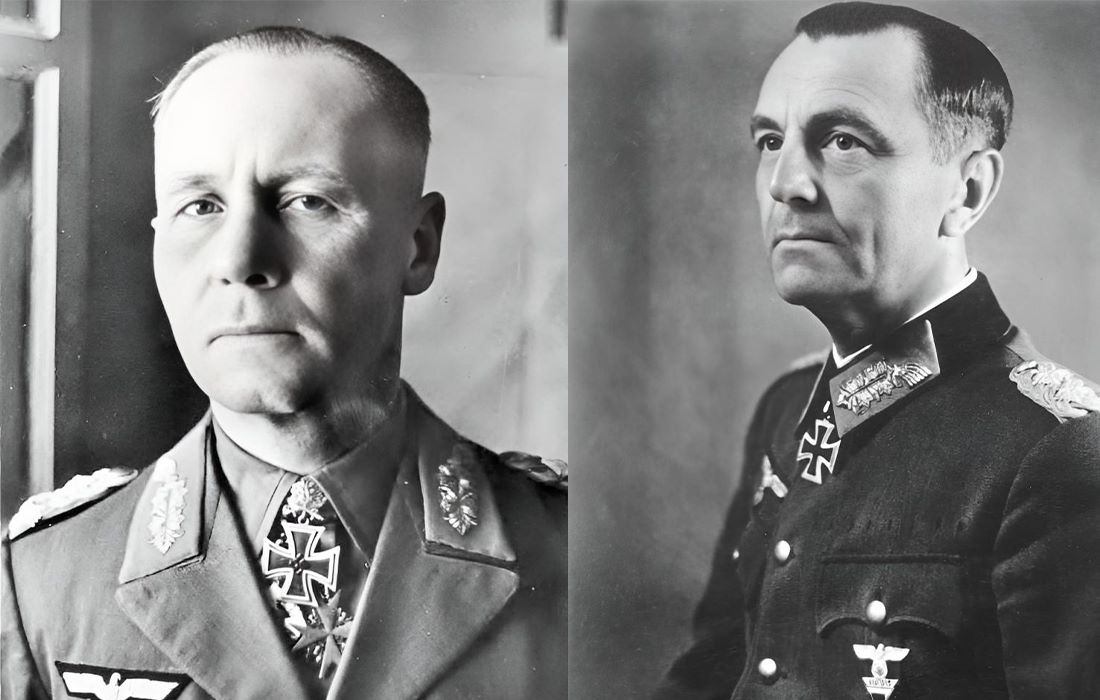Erwin Rommel and Friedrich von Paulus stand among the most renowned German generals of World War II. Their fates, however, diverged dramatically, each closely intertwined with the whims of the Third Reich’s leader, Adolf Hitler. In this blog post, we will embark on a comparative analysis of these two historical figures, exploring the reasons behind their distinct destinies. By examining their military careers and personal stories, we aim to shed light on why history unfolded so differently for Rommel and Paulus.
The Rise and Glory of Erwin Rommel
Erwin Rommel was born in Heidenheim, Germany on November 15, 1891. He joined the German Army in 1910, quickly rising through the ranks due to his exceptional tactical skills and leadership qualities. By the onset of World War II, Rommel had already distinguished himself as a competent officer, having served with distinction in World War I. His innovative tactics and bold maneuvers earned him a rapid series of promotions, culminating in his command of the 7th Panzer Division during the invasion of France in 1940.
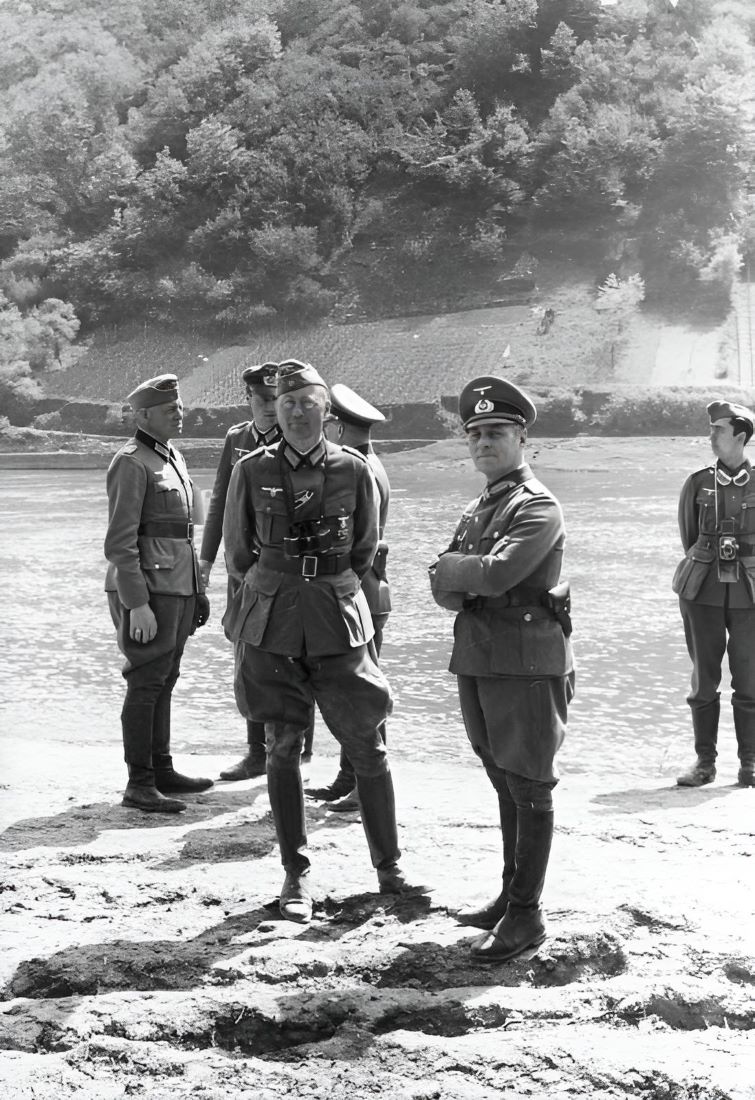
During World War II, Rommel’s successes in North Africa as commander of the Afrika Korps made him a household name. His adept use of mobile warfare earned him the nickname “The Desert Fox” and widespread acclaim both within Germany and among the Allies. The Nazi propaganda machine greatly amplified his reputation, portraying him as Hitler’s favorite general and an exemplar of the ideal German officer. Rommel’s image was carefully cultivated to boost morale and serve as a symbol of German military prowess, contributing significantly to his legendary status.
The Military Career of Friedrich von Paulus
Friedrich von Paulus was born on September 23, 1890, in Breitenau, Germany. He began his military career by joining the Imperial German Army in 1910. Known for his meticulous attention to detail and organizational skills, Paulus steadily advanced through the ranks. By the time World War II commenced, he had already established himself as a capable staff officer, having held various positions that showcased his strategic acumen. His competence in planning and logistics was instrumental in his rapid rise within the German military hierarchy.
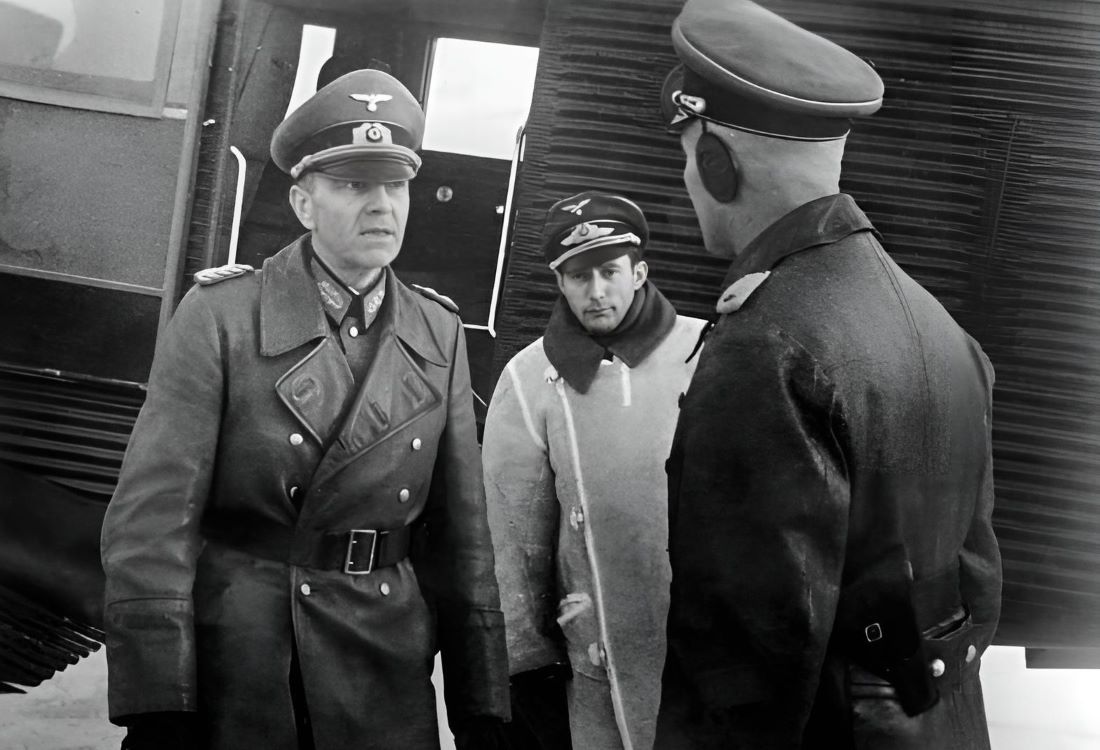
In World War II, Paulus played a significant role in several major campaigns. He served as the Chief of Staff to the German Sixth Army during the invasions of Poland and France, where his strategic insights were highly valued. His reputation grew further during the early stages of the Eastern Front, where he demonstrated his ability to orchestrate large-scale operations. The Nazi propaganda machine also highlighted his successes, presenting him as a key figure in the Wehrmacht’s efforts. This portrayal elevated his status within the military and among the German public, positioning him as one of the prominent generals of his time.
Rommel and Paulus: Contrasting Relationships with Hitler
Erwin Rommel’s North African campaign is a testament to his independent command style and dedication to his troops. Rommel frequently made decisions autonomously, prioritizing the welfare and tactical advantage of his soldiers on the ground. Despite his reputation for strictness and occasionally harsh decisions, he resisted interference from Hitler and Mussolini in his command. Rommel’s insistence on operational autonomy is exemplified by his refusal to follow direct orders that he believed were detrimental, such as his decision to withdraw from El Alamein against Hitler’s explicit commands. His ability to assert his judgment, even under immense pressure, underscores his commitment to effective and humane military leadership.
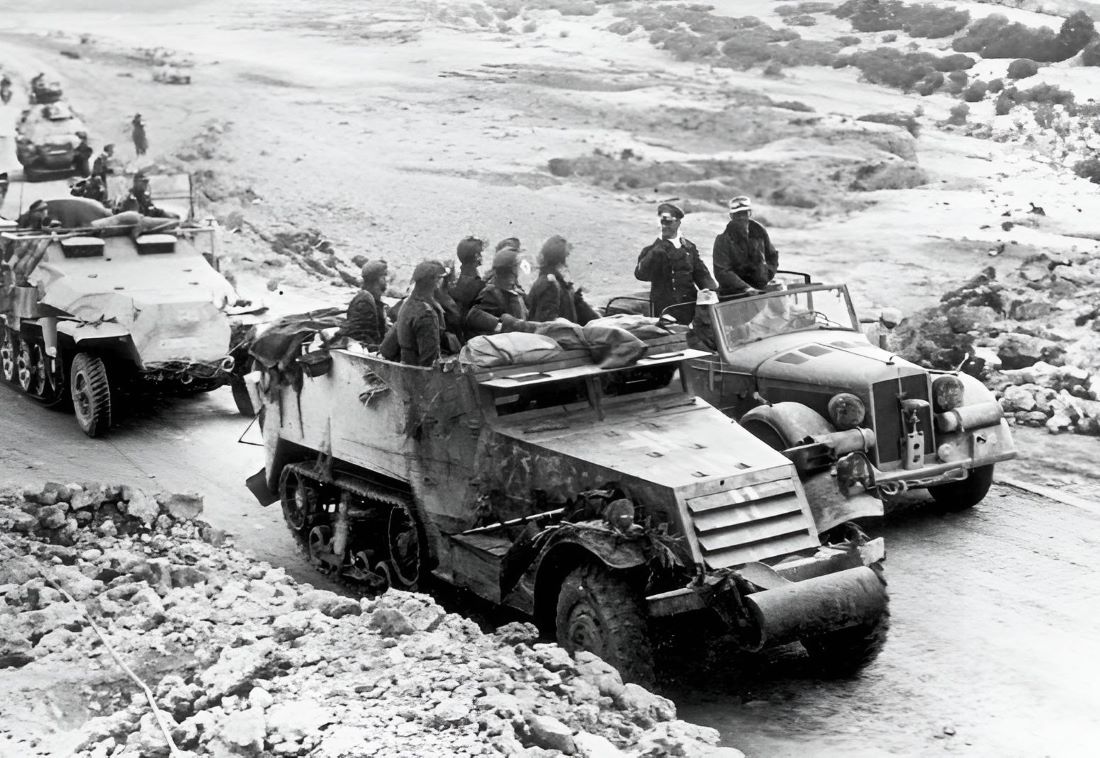
In stark contrast, Friedrich von Paulus struggled to withstand Hitler’s relentless demands during the Battle of Stalingrad. Commanding the Sixth Army, Paulus faced a dire situation as Soviet forces encircled his troops. Unlike Rommel, Paulus found himself unable to defy Hitler’s orders, even when he recognized the necessity of a strategic withdrawal to save his men. His hesitance and lack of resolve culminated in a disastrous entrapment, leading to the surrender of approximately 91,000 German soldiers. In a final act of defiance against reality, Hitler promoted Paulus to Field Marshal, a rank no German Field Marshal had ever surrendered alive, just before Paulus’s inevitable capitulation. This tragic end highlights the fatal consequences of Paulus’s inability to challenge Hitler’s impractical and destructive directives, marking a poignant contrast to Rommel’s more independent and soldier-centric approach.
The Fates of Rommel and Paulus After Key Turning Points
After his withdrawal from North Africa, Erwin Rommel found himself increasingly disillusioned with Hitler’s leadership and the direction of the war. Rommel came into contact with conspirators within the German military who were plotting to assassinate Hitler. While concrete evidence of Rommel’s direct involvement remains elusive, there are strong suspicions that he was at least aware of the plans and tacitly approved of the attempt to remove Hitler from power. This period marks Rommel’s realization that Hitler’s wars were leading Germany to ruin. Following the failed assassination attempt on Hitler on July 20, 1944, Rommel was implicated by association and, under immense pressure from Hitler himself, was forced to commit suicide, choosing to protect his family and maintain his honor.
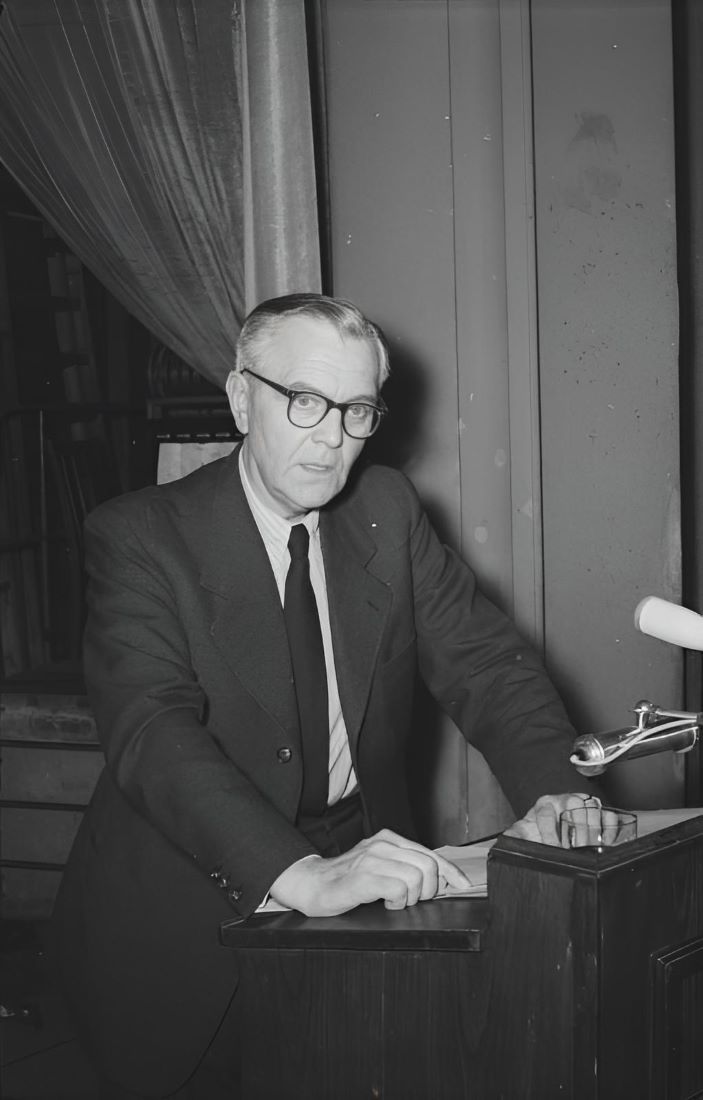
In contrast, Friedrich von Paulus faced a different fate after his surrender at Stalingrad. Imprisoned by the Soviets, Paulus spent his years in captivity reflecting on his role in the war. After the failed assassination attempt on Hitler, Paulus decided to cooperate with the Soviets, becoming a prominent critic of Hitler and the Nazi regime. He delivered numerous speeches denouncing the Führer, and his collaboration with the Soviets marked a significant turn in his post-war life. In 1953, Paulus was released and returned to East Germany, where he lived out his remaining years until his death in 1957. His final years were spent in relative obscurity, grappling with the consequences of his wartime actions and the historical weight of his decisions at Stalingrad.
Conclusion – Divergent Yet Parallel Paths of Rommel and Paulus
The divergent fates of Erwin Rommel and Friedrich von Paulus, while distinct in their outcomes, share a fundamental similarity rooted in the tumultuous era and the influential figures surrounding them. Both generals were products of their time, shaped by the ideological fervor and strategic imperatives of the Third Reich. Rommel’s story is marked by his ultimate disillusionment and tragic end, a reflection of his growing awareness of the regime’s failures. In contrast, Paulus’s trajectory from staunch obedience to outspoken critic illustrates the profound impact of captivity and introspection. By examining their biographies and actions, we gain deeper insights into the complexities of leadership, loyalty, and the moral dilemmas faced by military commanders under a totalitarian regime.
Historical Challenge: Can You Conquer the Past?
Answer more than 18 questions correctly, and you will win a copy of History Chronicles Magazine Vol 1! Take our interactive history quiz now and put your knowledge to the test!

